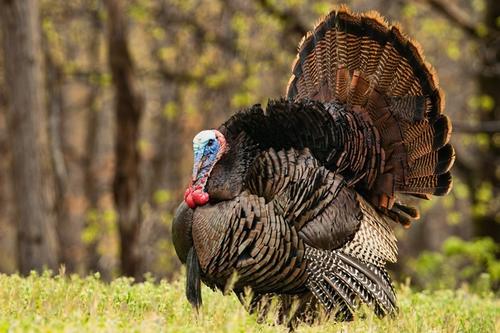
Veterinarians often deliver low-dose antibiotics to young turkeys as they develop in order to maximize their production and maintain health. However, the microbiome — the genetic material of bacteria, fungi, protozoa and viruses that live on and in all animals — is critical in the health and performance of all production animals. Overexposing turkeys to antibiotics can lead to antimicrobial resistance, which can make some turkey diseases untreatable and pose a serious risk to human health.
A recent University of Minnesota study is the first to find that customized probiotics — that match certain types of bacteria found in the host’s gut — can be an effective alternative to antibiotics for production animals. The team also suspects that similar approaches may be beneficial for humans. The findings were recently published in mBio.
The researchers used the turkey’s own microbiome to identify and refine a cocktail of host-tailored bacteria from a collection of thousands. They then delivered the cocktail to young turkeys and compared the effects of the probiotic cocktail with a commonly used low-dose antibiotic.
The study found:
- low-dose antibiotics and probiotics produced similar results, but only when the probiotics were tailored to match the concoction of microbes living within high-performing turkeys;
- alternative approaches to low-dose antibiotic use in poultry are feasible for promoting production and can be optimized when customizing to the indigenous poultry microbiome.
“Our results show that customized probiotics for food animals may be beneficial, which could be a game-changer for veterinary and human medicine,” said study lead Tim Johnson, an associate professor in the College of Veterinary Medicine. “No alternative will completely replace antibiotics, but these customized approaches allow us to maximize their effects and minimize their use.”
Johnson says the next steps will be to test customized probiotics in poultry farms to determine where they do and don't work. Johnson and his team have also submitted a patent application based upon this work for enhancing performance through customized probiotics in turkeys. The goal is to create a commercialized tool for veterinarians to use on farms. Ultimately, he hopes this approach will result in a suite of products that will benefit turkey growers in Minnesota and around the world.
- Categories:
- Health




